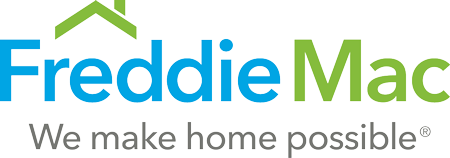 Freddie Mac continues to harness the power of big data in the new features and capabilities it’s building into Loan Advisor Suite, the firm’s set of tightly integrated Web-based tools for managing the entire mortgage lifecycle.
Freddie Mac continues to harness the power of big data in the new features and capabilities it’s building into Loan Advisor Suite, the firm’s set of tightly integrated Web-based tools for managing the entire mortgage lifecycle.
Introduced in July 2016, Loan Advisor Suite helps lenders achieve better operational efficiencies, improve loan quality and gain greater certainty regarding repurchase risk.
In early April, Freddie Mac began offering collateral representations and warranty relief. The firm anticipates expanding that offering soon, including through its automated collateral evaluation, which waives the need for an appraisal for certain mortgages. Additional new capabilities coming soon are automated borrower income and asset validation.
The anchor tool in the suite is Loan Product Advisor, Freddie Mac’s automated underwriting system. The tool gives lenders a detailed view of their credit risk via a sleek user interface and feedback certificate. To take advantage of the new capabilities on the horizon, lenders will need to use Loan Product Advisor.
To get the lowdown on the new features and capabilities, MortgageOrb recently interviewed Chris Boyle, senior vice president and head of single-family sales and relationship management for Freddie Mac, to learn how all lenders can derive significant value from Freddie Mac technology.
Q: Loan Advisor Suite was introduced in July, and at the time, you announced it would be rolled out in stages. What’s new with the suite since we last spoke?
Boyle: We’re very happy with the initial launch and with the amount of engagement we’ve had from our customers and the lending community. We’re helping to lead the modernization of the mortgage business and are pleased with how well our vision is being received.
Loan Advisor Suite was designed through a lender’s lens, and we are constantly thinking about how we can enhance it to best meet the needs of our customers and provide them with the best experience. The suite is evolving to provide lenders with greater certainty, easier navigation, simpler appraisals, quicker qualifications and more confidence in the quality of their loans.
Right now, there’s a lot of cost and regulation in the process for a lender. They want uncertainty removed from the process, simpler processes and an improved experience for their customers. An evolution is taking place, and it’s exciting for us to be a part of it.
In addition, many companies in the vendor space are also embracing change and redesign. We have good synergies and partnerships with them in serving our respective customers. They see the value of the suite for their customers.
Q: How has the feedback been regarding the improvements to Loan Product Advisor?
Boyle: Very, very positive. Modernizing Loan Product Advisor, improving the navigation and redesigning the feedback certificate, in particular, have been very well received.
The new feedback certificate helps lenders quickly identify and understand the key results on the loan. We worked really hard to make sure the messages are actionable and logically grouped by category. It has simpler navigation, as well as data visualization, and that makes finding the results fast and easy.
We came out with Loan Collateral Advisor last fall and are seeing great adoption. Our customers were asking for and now can receive collateral rep and warranty relief for eligible loans through Loan Collateral Advisor. We’re planning to expand that rep and warranty relief to make it more flexible, including through our automated collateral evaluation, so lenders can better serve their borrowers and take time and cost out of the process.
That desire for efficiency is why we added the ability to see eligibility for collateral rep and warranty relief in the Loan Product Advisor feedback certificate. Lenders using Loan Quality Advisor will know immediately whether a loan qualifies for collateral rep and warrant relief because we’ve added a new eligibility indicator to that tool, as well.
Q: Tell us about how automated asset validation is helping to speed the origination process.
Boyle: Our automated asset and income validation capabilities are intended to reduce origination costs, improve operational efficiency, and reduce income and asset-related loan defects while providing your borrowers with a better experience.
Instead of a borrower having to provide asset and income information manually on his or her application or through hard copies, we are leveraging third-party sources of data to provide information on things such as direct deposit payroll and tax records on an automated basis. This makes the process easier and faster for the borrower.
We also plan to offer our customers multiple vendor sources of data. The pace of innovation is swift, so we don’t want to lock our customers into one solution.
Q: Is there a distinction to be made between using “alternate” or “trended credit data” to underwrite loans and serving borrowers with no credit score?
Boyle: It is important to distinguish between the two. Most people consider “alternate data” to be data that might be predictive of a borrower’s ability to repay a mortgage, but it isn’t strictly data derived from the use of credit – for example, history of rent payment. Trended data looks at credit data over a period of time to help understand whether the attribute in question is improving or deteriorating. Alternate data probably has the greatest potential in the “no credit file/thin file” case because a borrower who has no credit record will not have trended credit either.
We’ve specifically focused on how to help lenders expand opportunities for the approximately 25 million customers without a traditional credit score. We’ve updated Loan Product Advisor to automate what had been a manual underwriting process for borrowers without credit scores; Loan Product Advisor can now help lenders serve more potential home buyers more efficiently and with greater certainty.
Q: It takes an average of 45 days to close a mortgage loan, and the appraisal is a big reason why. What is Freddie Mac doing to help speed up the appraisal process so that mortgage loans can close faster? How does big data factor into this?
Boyle: We are introducing an automated collateral evaluation through Loan Product Advisor. This new offering will save time and money for lenders and borrowers by waiving the need for an appraisal on certain mortgages.
By combining over 40 years of historical data with advanced analytics, we can increase valuation reliability while reducing risk for both lenders and Freddie Mac. Our current plans are to make it available for refinances at 80% loan to value and below.
We still expect that a significant majority of mortgage loans will continue to require traditional appraisals, but our automated collateral evaluation will provide another option for properties that can be valued by leveraging data and models.
Boyle concluded by saying that Freddie Mac will continue to add new features and capabilities to Loan Advisor Suite based on feedback from users. As mentioned, new capabilities that will soon be released include automated income and asset verification and support for the new automated collateral evaluation that Freddie Mac is developing.












